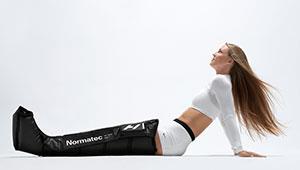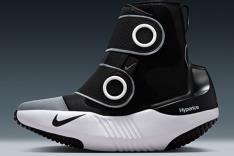Dance classes tend to be low impact, so you can break a sweat without putting too much stress on your joints (or aggravating a cold-related sinus headache). You can go at your own pace, as well: Take it easy on days you're not feeling 100 percent, and try to just enjoy the party.
Health.com: 10 Best Workouts for Your Sex Life
Worst: Lifting Weights
Your strength and performance will likely be diminished while you're battling a cold, says Besser—especially if you've missed out on quality sleep—putting you at increased risk for injury while trying to lift heavy equipment. Plus, the muscle strain required to lift weights can cause sinus pressure and headaches to feel even worse, he adds.
Still don't want to skip a strength workout? Do it at home, where you won't be spreading germs and sharing your sickness with other weight lifters, and give yourself a break by using lighter dumbbells than usual. (Increase your reps, not the weight, if you need more of a challenge, says Hulse.)
Health.com: The Best Strength Moves for Weight Loss
Best or Worst: Swimming and Biking
Like walking and jogging, other forms of moderate cardio can help clear congestion and boost energy levels, says Hulse—but they won't work for everyone. "It's really a matter of personal preference, what type of symptoms you have, and what your normal routine is like," she explains.
More: Your Elliptical Cardio Blast Workout
Swimming, for example, can feel quite refreshing, and may help open up airways. (For people who suffer from allergies, it can also help by washing away pollen and dust.) But some people may find it difficult to breathe while congested, or may be irritated by chlorinated waters. Biking can also be a nice, moderate exercise, but may dry out nasal passages and increase symptoms like sore throat and runny nose.
Health.com: Bike Your Way to a Better Body
Worst: Team Sports
Just like using the treadmill or weight machines at the gym, playing sports that involve physical contact can encourage the spread of illness. "If you're a pro athlete, then your coaches and teammates may expect you to be out there no matter what," says Besser. "But in something like a friendly neighborhood basketball league, they're going to thank you for sitting one out."
Cold and flu viruses spread through droplets, like tears and saliva—but also through hand-to-hand contact, he adds. "If you wipe your nose and then you pass the ball, you've just passed those germs on, as well." A 2011 study from the Centers for Disease Control and Prevention found that the sports teams are at high risk for outbreaks of the stomach flu norovirus among members.
More: Conquer the Cold and Flu in 20 Minutes
Worst: Anything Outdoors in the Cold
Working out in freezing temps may be detrimental to some people battling cold symptoms, but not for the reason you may think. Contrary to popular belief, cold weather in itself will not lower immunity or cause you to get sick—not even if you go outside without a coat or you sweat so much your hair gets wet.
What can happen, however, is that cold, dry air can restrict or irritate airways—triggering a runny nose, coughing, or asthma-like symptoms, says Hulse. If you find that you are sensitive to these conditions, winter activities like skiing, snowboarding, or snowshoeing might be even more difficult when you have a cold.
More: 8 Ways to Stay Warm During Cold-Weather Months
Plus: What about allergies?
Sometimes, what people think of as recurring cold symptoms—sneezing, headaches, nasal congestion—are actually allergies in disguise. "If you find that you are seeing those symptoms come on at the same time each year, you might want to ask your doctor about getting tested," says Besser.
Allergies to pollen and ragweed can make outdoor exercise difficult in the spring and fall, he adds, while allergies to dust, mold or harsh cleaners can be triggered by workouts at the gym or in other enclosed spaces. If you can pinpoint the cause of your symptoms, an antihistamine or other treatment can likely help you get back to your normal life—and your normal workout routine.
This article originally appeared on Health.com.
More: 9 Foods That Fire Up the Immune System
 Stay in shape in a fitness class.
Stay in shape in a fitness class.
- 3
- of
- 3
Get ACTIVE on the Go


Couch to 5K®
The best way to get new runners off the couch and across the finish line of their first 5K.
Available for iOS | Android








Discuss This Article